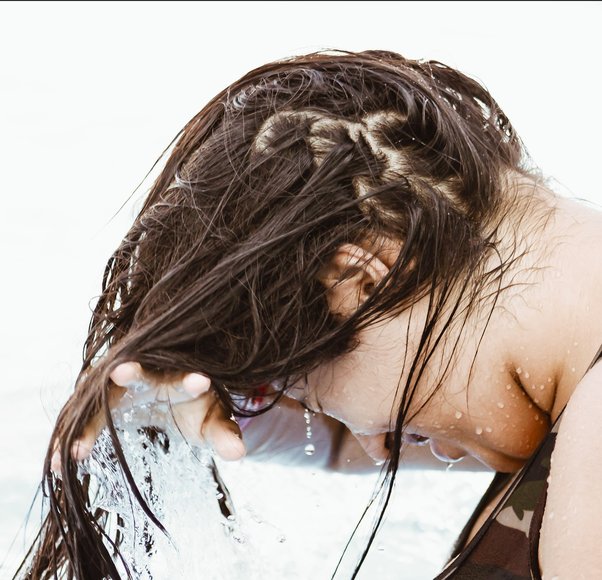
Using too much conditioner on your locks may cause more damage than good. Over-conditioning your hair can make it dry, brittle, unmanageable, greasy, and limp. However, you can easily solve this issue by limiting the amount of hair conditioner you use and curbing the daily usage of other styling products. This article includes steps about how to condition your hair properly and some helpful hair tips to fix any damage caused by over-conditioning. If you are not sure whether you overuse your conditioner, scroll down to know more!
In This Article
1. What Is The Use Of Hair Conditioners?
2. How Does A Conditioner Work?
3. What Is Over-Conditioning?
4. Signs That You Are Over-Conditioning Your Hair
5. Can Over Conditioning Cause Hair Loss?
6. How To Properly Condition Your Hair
7. How To Avoid Over-Conditioning Your Hair
8. Ways To Fix Over-Conditioned Hair
9. Infographic: Easy Steps To Treat Your Over-Conditioned Hair
1. What Is The Use Of Hair Conditioners?
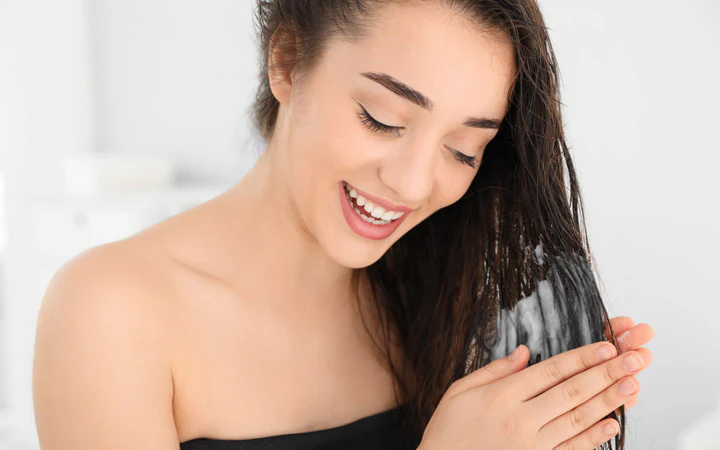
onditioner is mainly used for moisturizing, smoothening, and detangling the hair. It provides nourishment, reduces frizz, and strengthens your hair while coating the hair shafts with a protective seal to improve their texture. This layer is what gives your tresses the shine and texture that is indicative of healthy hair. Also, conditioner makes your hair softer and easier to manage.
Hair treatment with conditioners can add moisture and make your hair silky and soft. But, how does it work on your hair? Let’s find out this in the next section!
2. How Does A Conditioner Work?
Conditioner is mainly used to protect your hair and give it some added moisture. It creates a layer on the hair shafts and helps to nourish and hydrate your mane. Generally, conditioners lock in the nutrients and lock out the pollutants. This helps in strengthening the hair shafts, thus preventing split ends and hair breakage.
Every time you apply conditioner after shampooing your hair, a layer forms on the hair. As this layer keeps building up, your hair’s ability to absorb and react to other products reduces. This, in turn, helps protect the hair shafts from damage.
3. What Is Over-Conditioning?

When you over-condition your hair, each cuticle is heavily coated and adds more than the required amount of moisture to your hair. Due to this, other hair products – such as hair oils and serum – cannot penetrate your hair cuticle and work effectively. Furthermore, your hair becomes too soft and loses its volume.
Remember that you are coating the hair shafts with one extra layer of product each time you use a hair conditioner. Using too much conditioner and leaving it on your hair for too long, using a conditioner that is not suitable for your hair type, not washing the conditioner out of your hair properly, and conditioning your hair too frequently are some ways of over-conditioning. Furthermore, using styling products and moisturizing treatments in addition to a conditioner is another way of over-conditioning your hair.
4. Signs That You Are Over-Conditioning Your Hair
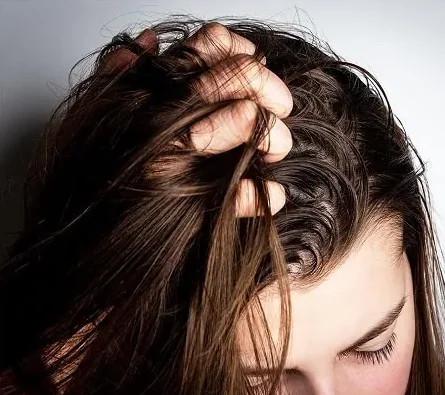
If you have used too much conditioner, you will soon start noticing signs that are easy to spot. Here are some of the most common signs that your hair has been over-conditioned.
- Your hair feels limp when you put too much conditioner on your hair. As over-conditioning adds too much moisture to the locks, your hair becomes very soft, looks sticky, and loses its natural volume. Also, it will look thin and feel heavy due to a lack of volume.
- If you are investing a lot of time in styling your hair then over-conditioning may be one of the reasons for it. Your hair will be difficult to manage and style as it is extremely soft and greasy. If you have curly hair and you applied too much conditioner to it, it will lose its bounce and will not stay in place. You can observe difficulty in styling updo hairstyles due to over-conditioning. Also, if you do an updo hairstyle, the hair will slide off from under the pins.
- One main advantage of using a hair conditioner is that it makes your hair soft and shiny. However, if you are using more of it, your hair will become super glossy. This, in turn, makes your hair sticky and uncomfortable.
- Greasiness is the most common sign of over-conditioned hair. Excess use of hairstyling and conditioning products can make your hair oily, greasy, and dirty.
- Over-conditioning also makes your hair on top look super flat and soft. The super-soft roots are not able to hold volume for a long time. Hence, minimize the quantity of the conditioner that you use on your hair to make it lustrous.
5. Can Over Conditioning Cause Hair Loss?
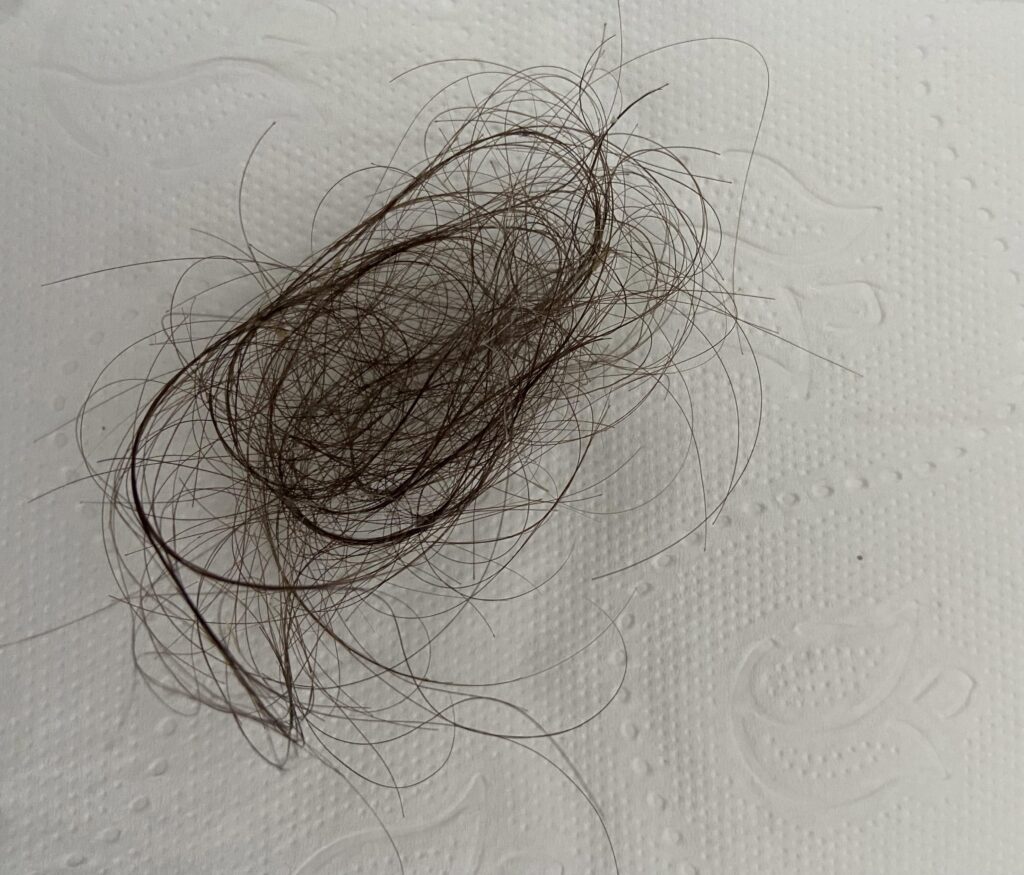
Excessive conditioning and product buildup may clog hair follicles, leading to hair loss in some cases. While there isn’t concrete scientific evidence, some hair care professionals believe that over-conditioning, especially with heavy or greasy products, might obstruct and choke the hair follicles, contributing to hair thinning and loss. However, it’s important to note that various factors, including genetics, diet, and overall hair care practices, play significant roles in hair health. Moreover, over-conditioning may also make the hair brittle and cause hair fall. Therefore, it’s advisable to maintain a balanced hair care routine and consult with a dermatologist for personalized advice if experiencing severe hair loss.
6. How To Properly Condition Your Hair

- Condition your hair every time you wash it.
- Make sure you do not leave the conditioner on your hair for more than a minute or two. Leaving it on your hair for too long can make it oily and weigh down.
- Apply conditioner only from the mid-length to the tips of your hair. Your roots don’t need any conditioner other than natural sebum.
7. How To Avoid Over-Conditioning Your Hair
To prevent over-conditioning your hair, it is essential to use the right quantity of conditioner and rinse it out thoroughly. Introducing a clarifying shampoo or scalp scrub into your regular hair care routine will help to stop product build-up. Conditioning your hair is a crucial step to get voluminous and healthy hair. However, you should do it the proper way to avoid oily and flat hair.
- Wash out the conditioner thoroughly with cool water. This will help to wash off any residues and product build-up from the hair. It will also give you shiny, healthy hair.
- Avoid using a leave-in hair conditioner after using a rinse-off conditioner.
Another important thing to remember is to avoid using too many hair styling products often as it will only weigh your hair down and make it even greasier.
8. Ways To Fix Over-Conditioned Hair
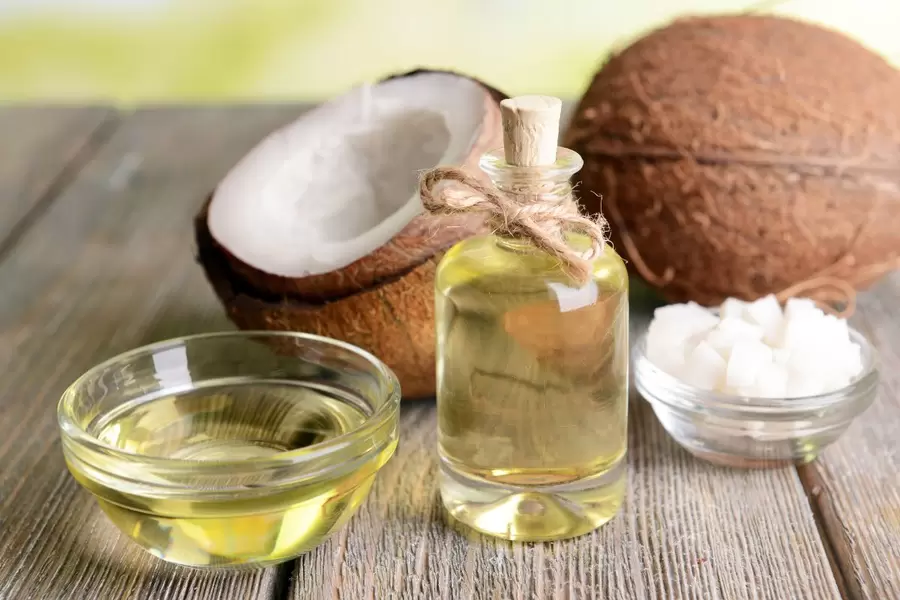
- Shampooing your hair properly to remove excess conditioner on your hair or using dry shampoo exactly where you can find the greasy spots on your hair can fix your problem.
- Rinse your hair with a 1:2 concoction of apple cider vinegar and water once a month. (This means 1 part apple cider vinegar and two parts water.)
- Over-conditioned hair looks limp, and using protein treatments can add volume back to your hair and make your locks stronger. But, make sure not to use these treatments too often.
9. Infographic: Easy Steps To Treat Your Over-Conditioned Hair
Often, the key to beautiful hair is using moisturizing hair products. These products can, however, accumulate on your hair and leave it dull, greasy, and difficult to maintain. Over-conditioned hair may occasionally appear oily at the roots and unruly at the ends. Fortunately, simple routine adjustments will help you salvage your bad hair day and maintain hair health.
Read the infographic below for some simple strategies to treat your over-conditioned hair.
Conclusion
Conditioning is the best part of any hair routine to maintain healthy and soft hair. But, over conditioning, your hair makes it super soft and difficult to style. You can prevent and fix over-conditioned hair by minimizing the use of hair conditioners and styling products and reducing how often you use deep conditioning treatments for hair maintenance.